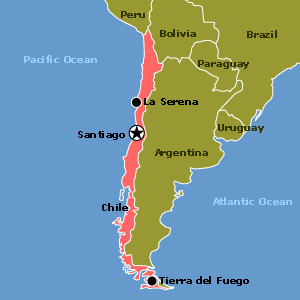-
Posts
22 -
Joined
-
Last visited
Recent Profile Visitors
The recent visitors block is disabled and is not being shown to other users.
atesin's Achievements
-
it worked finally.. thank you so much i hope with our new collaborator i will add through the panel now we will be more attentive to suspensions
-
hi... "my" hosting account was disabled (i mean the website of organization where i am volunteer sysadmin, because i have another account for personal use) - account = alanoncl - email = alanon.cl@gmail.com - domain = al-anon.cl ... i was not aware the account suspension because this last month i had to travel a lot because family businesses and couldn't access the mail/website too often ... recently a new member has arrived, interested in computing and help with our website (at last), i was showing the website/panel and found it was suspended i would appreciate if you reactivate the plesk panel and website .. thanks in advance
-
could be 2? ... "al-anon.cl" and "officenet.cl" ... the one of my organization (i am currently wotking on it) and the one of mine (later i will work on it) thank you so much
-
really?? ... could you please also disable "display_errors" just for me at least? .. which is the formal procedure to request it??? to see errors in both places is redundant... i would prefer not to see errors printed on page if they are already shown on logs, is cleaner another huge complication with "display_errors = on" is for example ajax... some ajax pages take the response in json, xml, csv, text or whatever format or api, in background, parse it and you see result in page accordingly.... if some unexpected error occurs, error messages will be inserted between the response that will break the entire parsing, turning pages and apps a disaster thanks for your diligence
-

[discussion] writing the perfect php mail() smtp system
atesin replied to atesin's topic in Website Management and Coding
oh i see ... "we already have postfix" i didnt know that we have postfix, and why i didnt imagine? xD ... i understand having posfix is better than to have some smaller smtp relay,,, and that the most common user case is to want a full featured smtp server to use email with his/her own domain, something not possible with a simple smtp relay i also understood that maybe i am asking for some elaborated solution, and that i am not in my home server anymore (i feel dumb)... so i think the better alternative i have to not to bother others is what you suggested me: to try a php mail library..... i am already doing tests with PHPmailer, is a little hard to adapt my scripts, but i am learning thanks for your patience -
i never meant the ability to edit the WHOLE php.ini file, i am aware of the risks... i mean things related with scripts and development and runtime like log system, timezones, charsets and that kind of things, mainly aimed to logging development and production... managing logs is important in development stage to "hear" what the program is saying, and in production debugging errors later if needed for example, i think we should have these php.ini configurations in the server, at least i would like being able to configure these directives, in my admin panel: log_errors = FIXED: "1": to always send error messages to file pointed in "error_log" (next directive) instead of server syslog error_log = FIXED: "/home/<user-folder>/logs/php_error.log" or some file inside user logs folder, to separate from apache error.log display_errors = customizable by user in admin panel, any default value (on|off)... to print messages breaking the page, depending on development status and personal preferences (still messages will go to "error_log" (above) anyway) error_reporting = customizable by user in admin panel (so some crazy user could even disable logging as you suggested if he/she wants), any default value date.timezone = customizable by user in admin panel, any default.. sometimes affects logging and script behavior
-
hi wolstech ..... yes i know this can be achieved with a common include amongst thousand other ways of doing, but all of these involve modifying code in many files, and many times that code is not mine ... additionally i am not currently using wordpress, maybe in the future i will install mybb or some other (cakephp?, laravel?, drupal?, kumbiaphp?) i am actually asking for a way to EDIT PHP.INI FILE server side trough admin panel or something, at least partially, by user (except shell_exec and critical configurations)... that will give us a little more control, making the hosting a little better... and will release you some work anyway... "error_reporting(0)" will disable error reporting completely, eveywhere... i instead would like to modify "display_errors", to not disable errors at all, but just hide them from output buffer, globally in my site, maybe with other variables too, from admin panel or some other way, to not having to modify too much files, even files with code i dont know
-
i understand.... but could you at least give us the chance to custom this value as desired, in admin panel, per user?.... because... ... that would mean in a program with, lets say, 50 php files, we must add "error_reporting(0)" in almost ALL files... the thing gets much more complicated with third party written apps/libs that we dont know the code ... applications breaks layout or just show blank screens, or stuck in infinite loops.. we dont know what happens and debugging is a nightmare because code turn a mess .... additionally, more skilled users could just disable error_reporting if they wish, and enable if they need, directly without staff intervention, releaseing your responsibility to do it (i.e. against related support requests you could simply answer "do it for yourself in admin panel").... in addition, i think the security (exposing site internals, increasing hacking chances) is a strong enough reason to try leave disabled by default server wide, but if you get flooded with support messages at least give us the chance to disable it by ourselves moreover... it could be fantastic if we could customize some other php ini values per user in admin panel.. i think in a bunch of php ini options that will be very useful for us to customize, without compromising server stability ... please consider, thanks maybe i could help with some scipt or coding (bash?, php?)
-
hi... i feel very happy and comforable here .... i am bringing some sites and webpages from my home server to here, step by step however i had to adapt some pages to these conditions, nothing too serious .... but some things i noted is about php logs management DEFAULTS making debuging applications very hard and risky... i know it could be changed at runtime with ini_set().. but for every php file in the sites?, i don't think so, that is for i mean the default server wide php values error_log is not defined = that means php error logs (actual errors or error_log() messages) finally got "mixed" with apache/nginx error.log, making difficult to isolate and read... i think better it should have its own <user folder>/logs file display_errors is on = meaning that on some error, log messages are mixed with http body/html code, turning the responses and pages a mess making debugging very hard, and site dangerous because risk of exposing site internals additional question: is there some "tail -f | grep" admin panel, or php script? .. thanks
-
hi... greetings from chile .. (chilean flag, not texas, we were before) chile is located in south america, his official language is spanish (so i am a native spanish speaker :P) somebody call chile "the edge of the world" because its long and narrow "vertical" shape at the western border of the continent, limited between its long pacific ocean coast and los andes mountains chain to east ... that means the country crosses through many latitudes, acquiring many different climates, from dessert to jungle, from beaches to mountains, making it with many diverse natural resources, apropiate for production and ecotourism... we also have territories in antarctica and easter island (officially called "rapa nui") we are about 20 million people in the country, half of wich live in the capital city Santiago... chile have traditions, and is also a modern country thanks to its economic stability (mainly thanks of years of pinochet's military regime.. but at a high price cost)... we are more famous because of being the (greatest?) productor of copper, by our tasty wines, and because our natural beauties (landscapes and women ) .... we are smart, tough but affectionate people
-

[discussion] writing the perfect php mail() smtp system
atesin replied to atesin's topic in Website Management and Coding
hi kairion, i appreciate your interest in the conversation... i am always passionate to learn new things do you know msmtp? i know original sendmail is an ancient program (maybe from 70-80's) and was possibly the only (or the easiest) way local users were able to "send mail" that days (hence the name) (but you need an outgoing mail service running locally).... so as it was a popular program, many later applications have "sendmail mode" like qmail or postfix (i never installed, i always try to skip the headache xD).... but ssmtp and msmtp (and others?) are special as they are small outgoing mail CLIENTS compatible with "sendmail mode" i mean, to send mail locally, normally we have to install and configure an outgoing mail server on your machine like postfix (a real headache)... to operate in "sendmail mode" like others, postfix have a /bin/sendmail binary that is overwritten when installed... so normally you have to install postfix, then configure the mailbox, dns, aliases, queues, network, etc etc, so you can then use /bin/sendmail [sendmail options] to send mail same way than before... posfix sends the mail directly to recipient mail server through smtp, the protocol that mail servers use between them but instead install and configure a whole mail server yourself, you can get a mail account in some already working mail server, and just install a "sendmail mode" smtp client to connect that server and let send your mails =D .... with some "sendmail mode" smtp relay (like ssmtp or msmtp) you can actually use php mail() with an external mail server ... configuration is tricky but easy, can even make it scriptable so that opens a lot of possibilities, i have also done in windows because windows php mail() sucks ... the only little downside is your mail address will have the "@extserver" suffix, but i dont care considering i didn't have to install the server and is not consuming MY disk space =D i mean... imagine msmtp is installed server wide, and an admin panel is added to configure parameters by user.... take a look of ssmtp and msmtp: https://wiki.debian.org/sSMTP https://marlam.de/msmtp/ -
hi... i think i messed up composer.. ... i am trying to install PHPmailer by hand, then delete (sent to .trash/) ... then i noted there is composer an run, it detected my deleted PHPmailer files... i went to wipe the .trash/ folder, now composer stuck... it complains about aplication folders "trash/" and suggest me to change editing composer.json, but the file appear empty ... maybe is because of the dot in .trash/ i cannot change/remove the application, even removing the whole folders, even emptying ./trash folder and delete .composrt/ fomder permanently... plesg regenerates the folder and still complains about the non-existing .trash/PHPmailer aplication... cant change path or remove app from composer either
-
who is the most powerful (human) being in the planet? some uber millionarie like bill gates, elon musk or jeff bezos? ... or a whole family like the rockefellers, rotschilds or bilderbergs?... or some group of people like the illuminatis or the francmasons or the khazars? ... or even out of this world beings like the anunnakis, or the grey ones? i think the most powerful and wealthest person in the world coluld be not interested to be known who he/she/it is, or even could be paranoid and wants to not being known at all... the millionares in the above paragraph are the known ones, but i think it could be others even more millionare/powerful that are unknown i think the most poweful person in the world could even not be a person... it could be a supercomputer or a superbeing living inside a tank, communicating with other less poweful people (i.e. bill gates, rockefeller, etc) through cables in his/her/its head, or through telepathy... telling them what to do next the most richest/powerful person don't has necessarily to be known
-
hi.... in my home server, i invented a system that tracks ip addresses to avoid spam in html forms, ip's are written in include files hidden by nginx.. by extension .inc = i use these with php include, the inclusion and execution works despite the extension, but i want to hide direct download/execution for security .dat = i use these files as little text databases/tables, for example to store csv-like data... i want to block direct viewing/downloading .404, .hidden, etc = generic hidden files ... how could this be achieved server wide, here in heliohost?? ... or are files starting with dot hidden by webserver at least?
-
for languages other than english (and for english symbols itself) , for example: spanish (Ñ, accented letters), portugese and french (cedilla), nordic countries (umlaut), etc etc sometimes my spanish pages (i am chilean) show some garbage characters... is very tedious to change every single html file to add <meta charset='UTF-8'/> or add html entities in all html + text files !! .... in my home server (nginx) i have a wide configuration to add Content-Type: text/html; charset=UTF-8 header always , but i dont know how to do it here.... until now.... go to plesk .... > left panel > websites + domains .... > conent view > hosting + dns tab .... > lower view > apache + nginx settings ... > content view > common apache settings > mime types > check "enter custom value" .... in textarea you can add one custom mime type each line ... the last word (separated by space) must be the file extension plesk search for the first space and cut the string there .. as the string text/html; charset=UTF-8 have a space in the middle it gets truncated... the soultion i found is to enclose with quotes (silgle or double) ... for example, these are the configurations i have of course, for this to work you must ensure save your files with utf-8 encoding, or set mime types and files encoding accordingly (i like utf-8)... a little issue is plesk lowercases all characters, turning UTF-8 into utf-8 ... dont know if is non-standard, but pages seem to work ok





